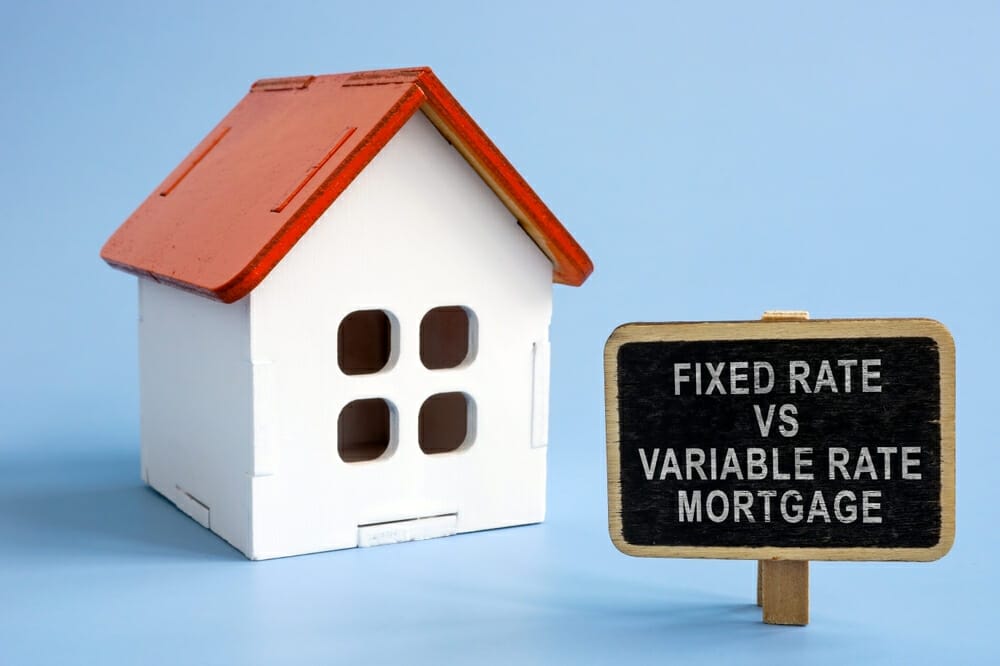In the realm of mortgage financing in New Zealand, one of the most crucial decisions borrowers face is whether to opt for a fixed-rate mortgage or a floating rate mortgage. This decision carries significant financial implications and requires careful consideration. Let’s delve into the nuances of each option to help you make an informed choice that aligns with your financial goals and circumstances.
Fixed-Rate Mortgages: Stability and Predictability
Fixed-rate mortgages have long been a popular choice for borrowers in New Zealand and around the world. The primary allure lies in their stability and predictability. When you choose a fixed-rate mortgage, your interest rate remains constant throughout a predetermined period, usually ranging from one to five years.The choice between a fixed-rate mortgage and floating-rate mortgage depends on your financial goals, risk tolerance, and long-term plans.
Here are some key advantages of fixed-rate mortgages:
Rate Certainty: With a fixed-rate mortgage, you can plan your budget with confidence. You know exactly how much your monthly mortgage payments will be for the duration of the fixed term.
Protection Against Rate Increases: If market interest rates rise during your fixed-rate term, you won’t be affected. Your interest rate remains locked in, providing a shield against potential financial shocks.
Peace of Mind: Fixed-rate mortgages offer peace of mind, as you won’t have to constantly monitor market fluctuations or worry about sudden increases in your mortgage costs.
Stable Housing Costs: For those on a tight budget or with limited income growth expectations, fixed-rate mortgages provide stability in housing costs, making it easier to manage finances.
However, fixed-rate mortgages come with a few drawbacks:
Lower Initial Rates: Typically, fixed-rate mortgages start with slightly lower interest rates compared to floating-rate mortgages.
Limited Flexibility: You may face penalties if you decide to break your fixed-rate contract before the term ends, potentially costing you more in the long run.
Missed Savings Opportunities: If market interest rates drop significantly during your fixed term, you’ll miss out on potential savings.
Planning on exploring a first-home buyer journey? You are at the right place. Get to know us and book a consultation with our Certified Financial Advisors who will navigate you wisely.
Floating Rate Mortgages: Flexibility and Market-Driven Rates
Floating rate mortgages, also known as variable rate mortgages, offer a different approach to home financing. These mortgages are linked to a benchmark interest rate, often the Official Cash Rate (OCR) set by the Reserve Bank of New Zealand, and can fluctuate over time. Here are the advantages of choosing a floating rate mortgage:
Higher Initial Rates: Floating rate mortgages typically come with higher initial interest rates compared to fixed-rate mortgages. This can translate into higher initial monthly payments.
Flexibility: Floating rate mortgages often have more flexible terms, allowing you to make additional payments without incurring penalties and potentially helping you pay off your mortgage faster.
Benefit from Rate Decreases: If market interest rates decline, your mortgage payments will decrease, offering potential savings.
However, floating rate mortgages also have their share of drawbacks:
Rate Uncertainty: Your monthly payments can fluctuate, making it challenging to budget for housing costs.
Exposure to Rate Increases: When interest rates rise, so do your mortgage payments. This can put financial strain on your budget if you’re not prepared for higher payments.
Risk of Rapid Increases: While rate increases are typically gradual, they can spike unexpectedly, potentially causing financial stress.
Making the Right Choice – The decision between a fixed-rate mortgage and a floating rate mortgage ultimately boils down to your financial goals and risk tolerance.
Here are some considerations to help you make an informed choice:
Assess Your Budget: Determine how much you can comfortably allocate to mortgage payments. If you need stability, a fixed-rate mortgage might be the better choice.
Consider Future Rate Trends: Research economic indicators and forecasts to get a sense of where interest rates may be heading in the near future.
Consult a Mortgage Advisor: Seek advice from a financial advisor or mortgage broker who can help you understand your options and choose the mortgage that aligns with your financial goals.
Factor in Your Future Plans: Consider how long you plan to stay in your current home. If you anticipate moving or refinancing in the near future, a floating rate mortgage may make more sense.
In for a surprise? Line of credit facility.
There is another type of hybrid floating loan facility, called line of credit facility. This is when the current account and the loan account are merged together. Usually, one’s salary is directly credited to the loan account.
This is the best and quicker option to repay your loan and to manage the loan account . In this loan account, the limit is created at the beginning of the loan when it is set up. When the salary is credited into this account the loan amount is reduced.
This facility is allowed when the borrower withdraws the amount paid into the account up to the limit when the loan is set up. Each lender has been using different names for this type of facility like Orbit facility to ASB Bank, Flexi facility to ANZ Bank, Rapid repayment to BNZ Bank and so on.
To prevent interest rate fluctuation the major portion of the loan is recommended to be on fixed term. A certain percentage can be on floating or line credit facilities. If the LVR (Loan value to Ratio) is greater than 80% most lenders would not facilitate this line of credit facility but a floating loan is allowed.
Talk to us today, your experienced advisors at Mortgage Masters. We can work on a line of credit facility.
In conclusion, the choice between a fixed-rate mortgage and a floating rate mortgage in New Zealand hinges on your individual financial circumstances and preferences. Both options have their pros and cons, and there’s no one-size-fits-all solution. By carefully weighing the advantages and disadvantages and seeking our professional guidance, you can make a mortgage decision that aligns with your long-term financial well-being. Remember, what’s most important is choosing a mortgage that allows you to comfortably achieve your homeownership goals.
Contact us now and let our Financial Advisors at Mortgage Masters help you navigate this seemingly challenging journey with ease and show you the path towards living your dream as a First Home Buyer today.

















